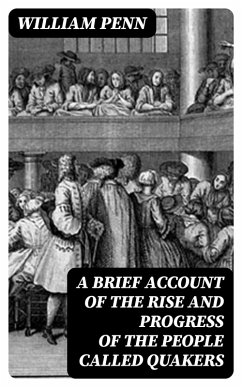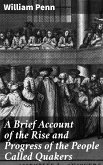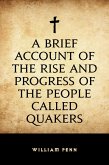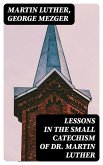In "A Brief Account of the Rise and Progress of the People Called Quakers," William Penn offers a meticulous chronicle of the Quaker movement's origins, beliefs, and societal impacts. Written in a clear, didactic style typical of early 18th-century religious literature, the text serves as both a historical record and a polemical defense of Quaker principles. Penn adeptly contextualizes the theological debates and sociopolitical challenges faced by Quakers, emphasizing their commitment to pacifism, social equity, and religious freedom amidst pervasive persecution. This book is situated within the broader landscape of Enlightenment thought, showcasing the intersection of spirituality and reason that characterized the period. William Penn, the founder of Pennsylvania and a prominent Quaker leader, wrote this work to clarify misconceptions about the Quaker faith while advocating for tolerance and coexistence among different religious communities. His deep personal conviction and experiences with oppression shaped his desire to articulate the core values of Quakerism, reflecting his ongoing commitment to civil liberties and social justice. Penn's insights make this work not only a historical account but also a philosophical exploration of faith in the public sphere. This book is an essential read for anyone interested in religious movements, social justice, or the historical evolution of American values. Penn's compelling narrative and passionate advocacy provide profound insights into the Quaker faith, making it a vital resource for scholars, students, and general readers alike who seek to understand the roots of religious pluralism and freedom.
Dieser Download kann aus rechtlichen Gründen nur mit Rechnungsadresse in A, B, BG, CY, CZ, D, DK, EW, E, FIN, F, GR, H, IRL, I, LT, L, LR, M, NL, PL, P, R, S, SLO, SK ausgeliefert werden.









